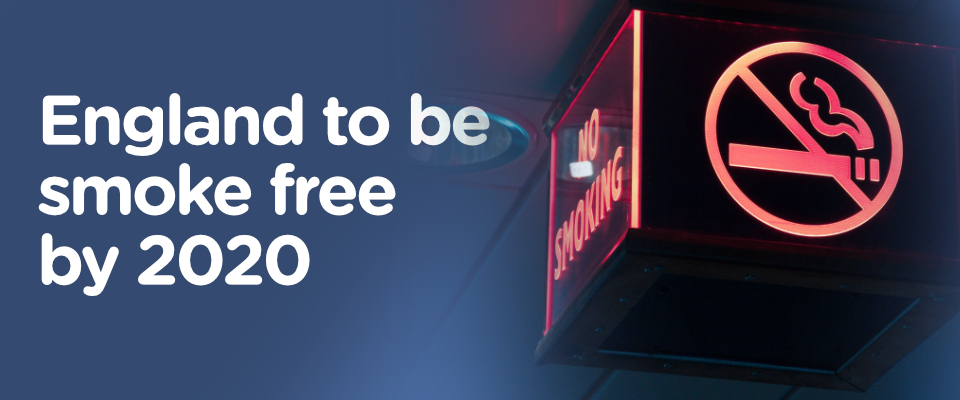Recent years have seen a huge increase in the number of people vaping throughout the UK. Meanwhile, a report from the Office for National Statistics (ONS) found that smoking among UK adults had dropped by over 5% since 2011, reaching 14.7% according to the most recent available data.
With such a huge drop in smoking rates – falling by an impressive 25% in a few short years – it is perhaps not surprising that the UK Government would like to make England a smoke-free country by 2030.
Could it happen in just 10 years?
We are entering the last few weeks of 2019 and about to head into 2020. Therefore, the deadline is a little over a decade away. Could this ambitious plan come to fruition?
The huge fall in smoking rates in the UK was confirmed in the ONS report, Adult smoking habits in the UK: 2018, released in July 2019. Yet even with a notable 5% drop in that period, this wouldn’t lead to smoking being completely eradicated.
A Government green paper was released that highlighted the ambitious target
A green paper is a preliminary report rather than a report that is set to become law. However, it has had the desired effect of generating plenty of discussion about the topic of reducing and eventually eradicating smoking in the UK.
The report in question, ‘Advancing our health: Prevention in the 2020s’, covered far more than just smoking. However, since the report focused on combating health conditions that could be prevented, smoking was heavily featured. It pointed out that we already have ‘one of the lowest smoking rates in Europe.’ That is something to celebrate, and it is encouraging that the Government wants to go further.
The report went on to state the desire to eradicate ‘smoked tobacco’ by the 2030 deadline. It also mentioned that e-cigarettes could be a good alternative to smoking to help achieve this aim.
Vaping has a big role to play
Many people attribute the big drop in smoking rates to the advent of vaping. Certainly, this seems to have become the most popular way for smokers to quit. There are several other nicotine replacement therapy options available, but for many, vaping most closely imitates the act of smoking a cigarette. Replicating that experience is clearly useful for many. It also means the individual can receive that nicotine hit while quitting harmful cigarettes.
It’s true that some people have managed to quit from their own efforts alone, but for many, the easiest route to quitting is via vaping. Promisingly, the report made it clear the idea was to move towards preventative measures. It’s no surprise that reducing and wiping out smoking altogether is a key part of this.
Hospitals will soon provide an opportunity for smokers to accept treatment to quit
At the beginning of 2019, NHS England created headlines by confirming millions of pounds would be invested in helping smokers and excessive drinkers quit their respective habits. The nature of the help was not stated, but it was confirmed that smokers being admitted to hospital would receive support in trying to stop smoking.
While this is a good step to take, and applies regardless of the reason for admission, we think it would be better still for GPs to provide the support and advice. While not all smokers are admitted for a reason connected to their habit, this will be true in some instances. Why not provide the advice and support at an earlier stage, hopefully to see off any potential illnesses or conditions that could arise that would lead to hospital admission?
Will the Government achieve its aim of a smoke-free England by 2030?
It is ambitious, to be sure, and the Government has yet to reveal how it intends to achieve this aim. The steps to be taken are to be revealed at a later date. However, even if it falls short of wiping out smoking completely by 2030, it is likely we will see rates drop still further.
Every age group has seen a drop in smoking rates over recent years. Vaping has helped and should continue to do so in future. The laws in the UK are far more relaxed on vaping than we’ve seen in other countries, and this looks likely to continue.
If England did manage to become smoke free – and we think it will eventually, perhaps not by 2030 but certainly eventually – we suspect it could be one of the first countries to achieve the feat. Taking active steps to support smokers, to provide advice and nicotine replacement therapies, and to help people stop before they experience illnesses associated with smoking, are all important.
What are your thoughts on this aim? Do you think the Government could make England smoke free in the next decade? Let us know what you think by leaving your comment below.
